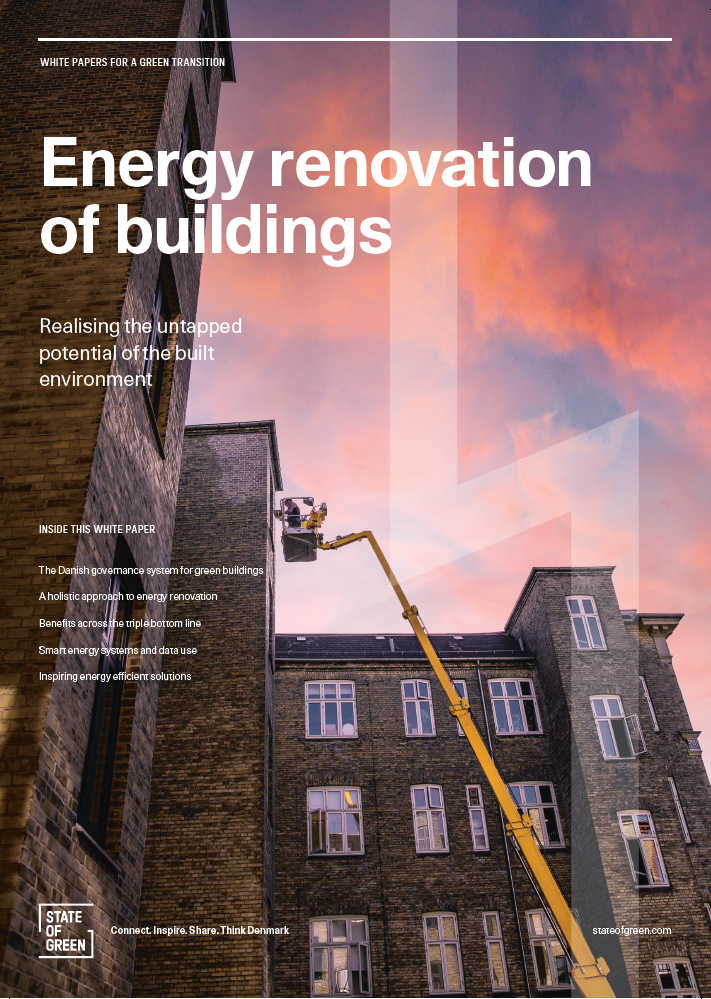Download our publication on energy renovation of buildings today
This article is part of our publication ‘Energy renovation of buildings’.
Download nowPerspective
Buildings
Industry


Thinking strategically about construction as both a practice and an industry is essential to achieving energy efficiency in buildings through renovation. In Denmark, this is reflected in multiple efforts initiated by the government with support from, and in synergy with, the industry.
The private sector plays an important role in the green transition of our societies. Partly via efforts to reduce emissions in value chains, and partly by developing new sustainable products and practices. Building on the Danish tradition for public-private partnerships, the Danish government has established 14 climate partnerships that represent different sectors of the country’s economy, each of which has been tasked with proposing solutions as to how their individual sector could contribute to CO2 e reductions in a just way. Among them is the Climate Partnership for Construction.
The partnership has proposed 14 concrete initiatives related to energy renovations, focusing on achieving heat savings through increased renovation ates and public investments, renovating social housing units, packaging energy renovation solutions for homeowners and activating energy labelling as an enabling energy savings tool. If implemented by 2030, the partnership’s recommendations on energy renovations can contribute to reducing CO2
emissions 729,000 tonnes annually.

This article is part of our publication ‘Energy renovation of buildings’.
Download nowThe sentiment of the partnership is reflected in the National Strategy for Sustainable Construction adopted in 2021. The strategy centres around five focus areas:
These are all areas where energy renovation has a potential role to play. The strategy clearly states that economically and environmentally feasible energy renovations are a powerful tool to achieve energy savings in a way that is healthy for both the planet and its people. To support renovation efforts, the strategy includes initiatives on targeted, digital measures to streamline energy as well as subsidies to help realise energy savings.
The initiatives will make it easier to identify and realise energy saving potentials in both public and private buildings. Additionally, the strategy entails developing Life Cycle Assessment requirements to be phased into the national building code as a requirement by 2023. In line with recommendations
from the IEA, the requirements will enable smarter and more sustainable construction and renovation choices. Choices that will reduce the climate footprint of construction and support the industry in its aim to build more sustainably and promote green solutions.
solutions
Energy efficiency in buildings
+5